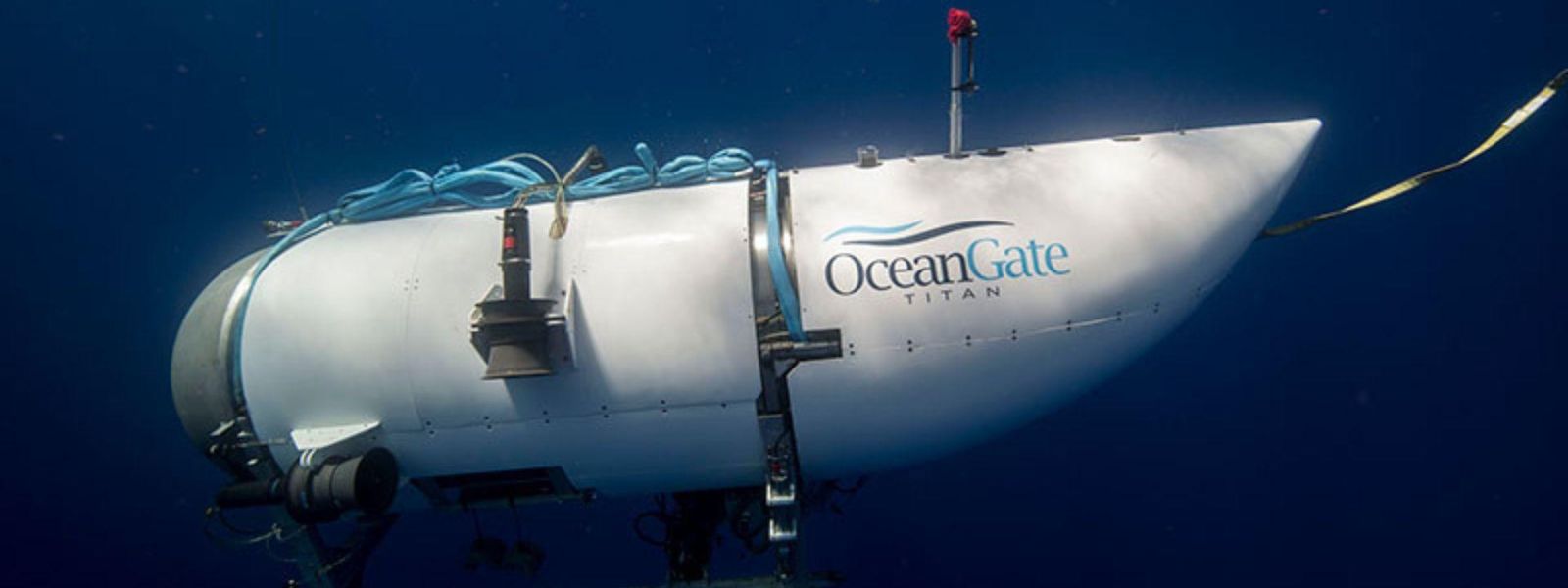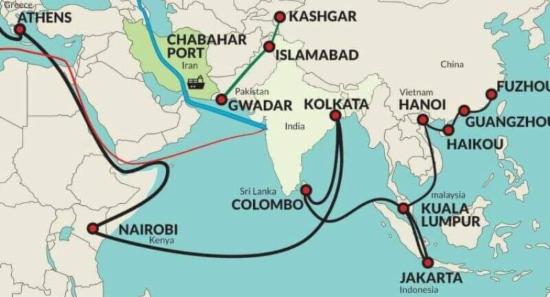.webp)

‘Banging sounds’ heard as rescuers race against time in hunt for Titanic tourist sub
CNN: Sonar picked up banging sounds on Tuesday from underneath the water in the North Atlantic Ocean while searching for a submersible with five people onboard that went missing two days earlier on a dive to the Titanic wreckage, according to an internal US government memo on the search.
Crews detected banging sounds every 30 minutes – and four hours later, after additional sonar devices were deployed, banging was still heard, according to the memo. It was unclear when on Tuesday the banging was heard or for how long, based on the memo obtained by CNN.
“Additional acoustic feedback was heard and will assist in vectoring surface assets and also indicating continued hope of survivors,” a later update reads.
A Canadian P3 aircraft also located a white rectangular object in the water, according to that update, but another ship set to investigate was diverted to help research the acoustic feedback instead, according to that update.
Rolling Stone was first to report the news Tuesday night.
The US Coast Guard said underwater noises were detected by a Canadian P-3 aircraft, prompting the relocation of resources to explore their origin. But “searches have yielded negative results,” the agency tweeted.
“Additionally, the data from the P-3 aircraft has been shared with our U.S. Navy experts for further analysis which will be considered in future search plans,” the US Coast Guard added.
OceanGate told CNN they have no information to share on this when reached for comment. CNN has also reached out to Canadian authorities for comment.
The report comes amid a multinational race against time to find the submersible and its five passengers before their oxygen runs out.
As the massive search stretched into its third day, more ships and aircraft have joined the mission.
A spokesperson for the US Navy said the military branch is sending subject matter experts and a “Flyaway Deep Ocean Salvage System” to help in the rescue mission for the commercial submersible, which disappeared Sunday morning and as of Tuesday night, had just over 30 hours of oxygen left.
The system has the capacity to lift and recover large, bulky and heavy undersea objects, like the small submersible.
The equipment and personnel were expected to arrive at St. John’s, Newfoundland, by Tuesday night, the spokesperson said.
The US Coast Guard and the Royal Canadian Air Force are also deploying more aircraft and vessels to aid in the search for the 21-foot submersible. The fleet of assets joining the operation include a Canadian pipe-laying vessel with underwater capabilities, along with other vessels and aircraft.
The submersible, known as “Titan,” was carrying one pilot and four “mission specialists” when it lost contact with its mother ship about 1 hour and 45 minutes into its descent, authorities said. Titan is roughly the size of a minivan and is equipped with repurposed everyday items, including a video game controller used to steer.
Authorities have emphasized the importance of sonar equipment to listen for sounds underwater during the search for the vessel – which could be deep in the ocean.
“The submersible is going to be making sounds itself with the systems on board … the crew, hopefully, are making noises as well,” retired Capt. Bobbie Scholley, a former US Navy diver, told CNN Monday. “Those sonar buoys are picking up, they’re very good and they’re detecting these noises.”
Titan’s operator, OceanGate Expeditions, says the vessel begins each trip with 96 hours of life support.
That is “a short amount of time,” said Scholley.
“The hard part is finding the submersible. And once they find the submersible, there are all sorts of situations of how to get that submersible to the surface, and rescue the crew,” Scholley said.
The international search and rescue operation is “doing everything possible” as part of a “complex search effort” but has so far “not yielded any results,” US Coast Guard Capt. Jamie Frederick told reporters Tuesday at a 1 p.m. ET news conference. The “unique” and “challenging” search effort has brought together “our nations’ best experts,” he said.
At the time, Frederick estimated the vessel was down to 40 hours of oxygen – and officials do not know whether that’s enough time to rescue those onboard.
“What I will tell you is, we will do everything in our power to effect a rescue,” he said in response to a question about the oxygen time limit from CNN.
Other Articles
Featured News





.png )












.gif)








.webp)






